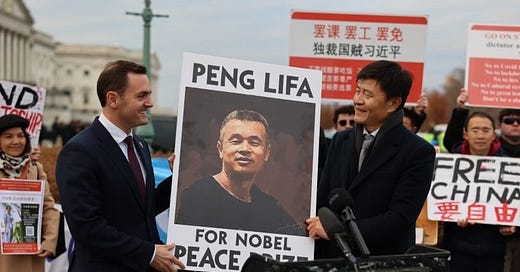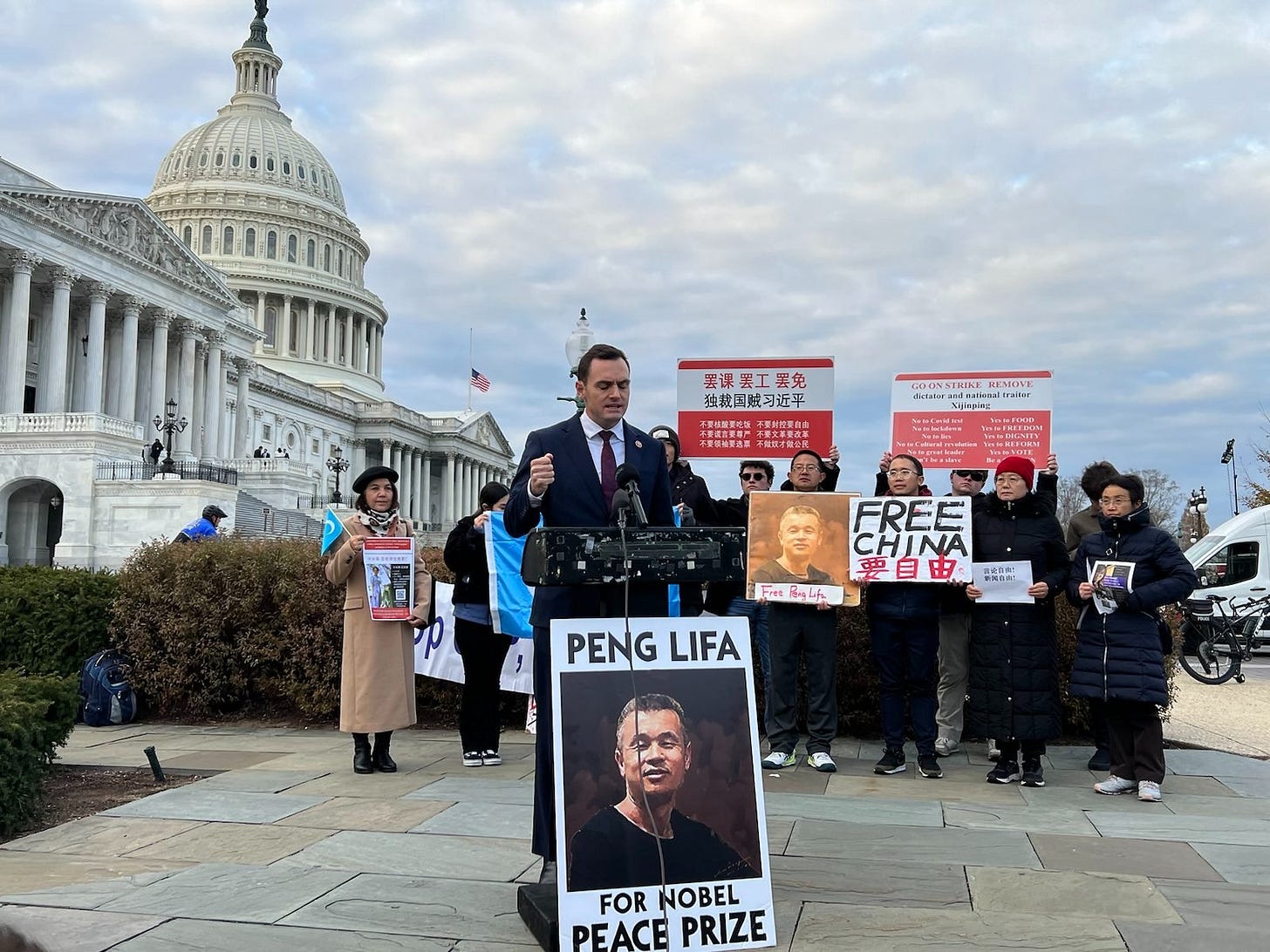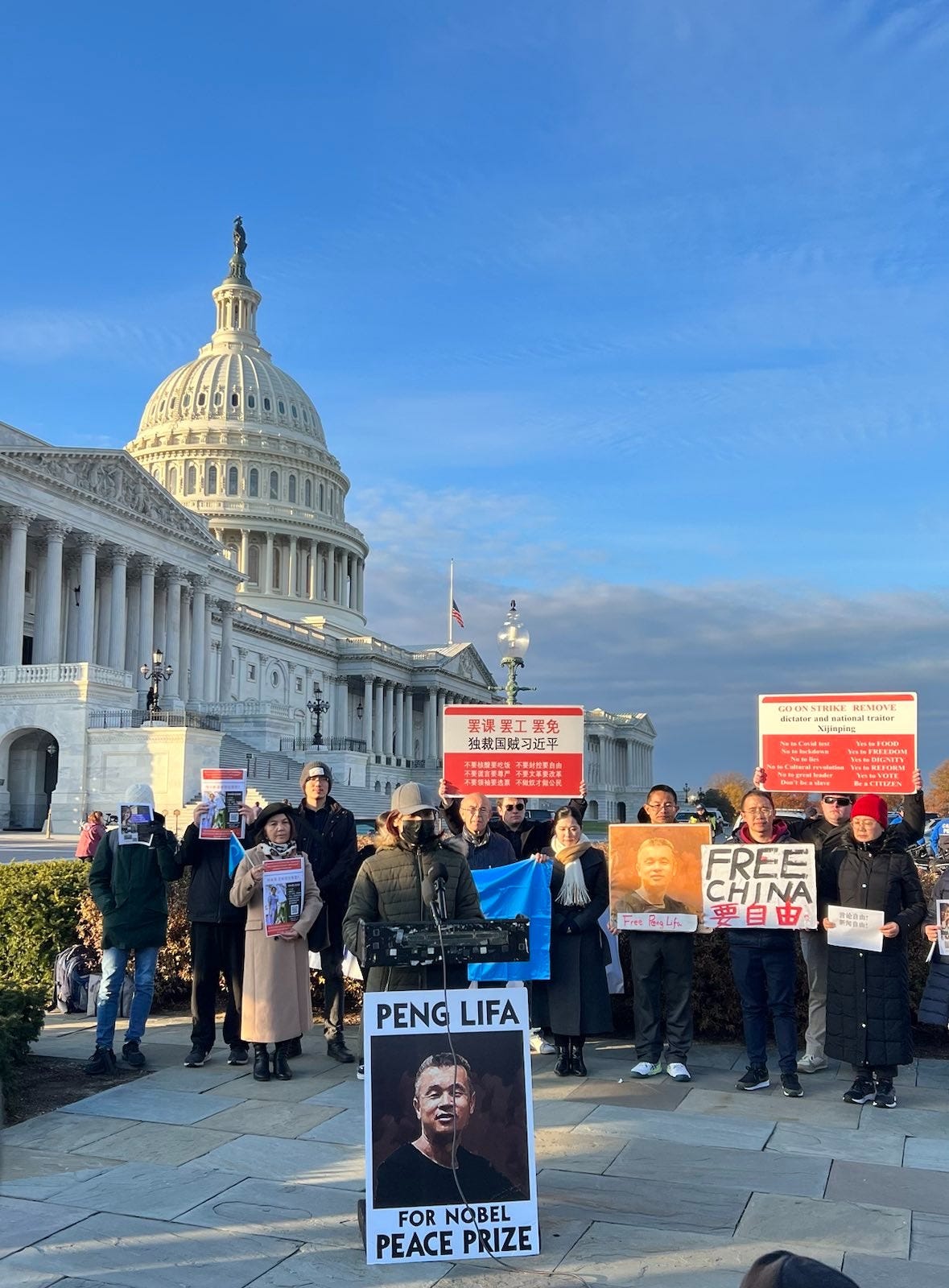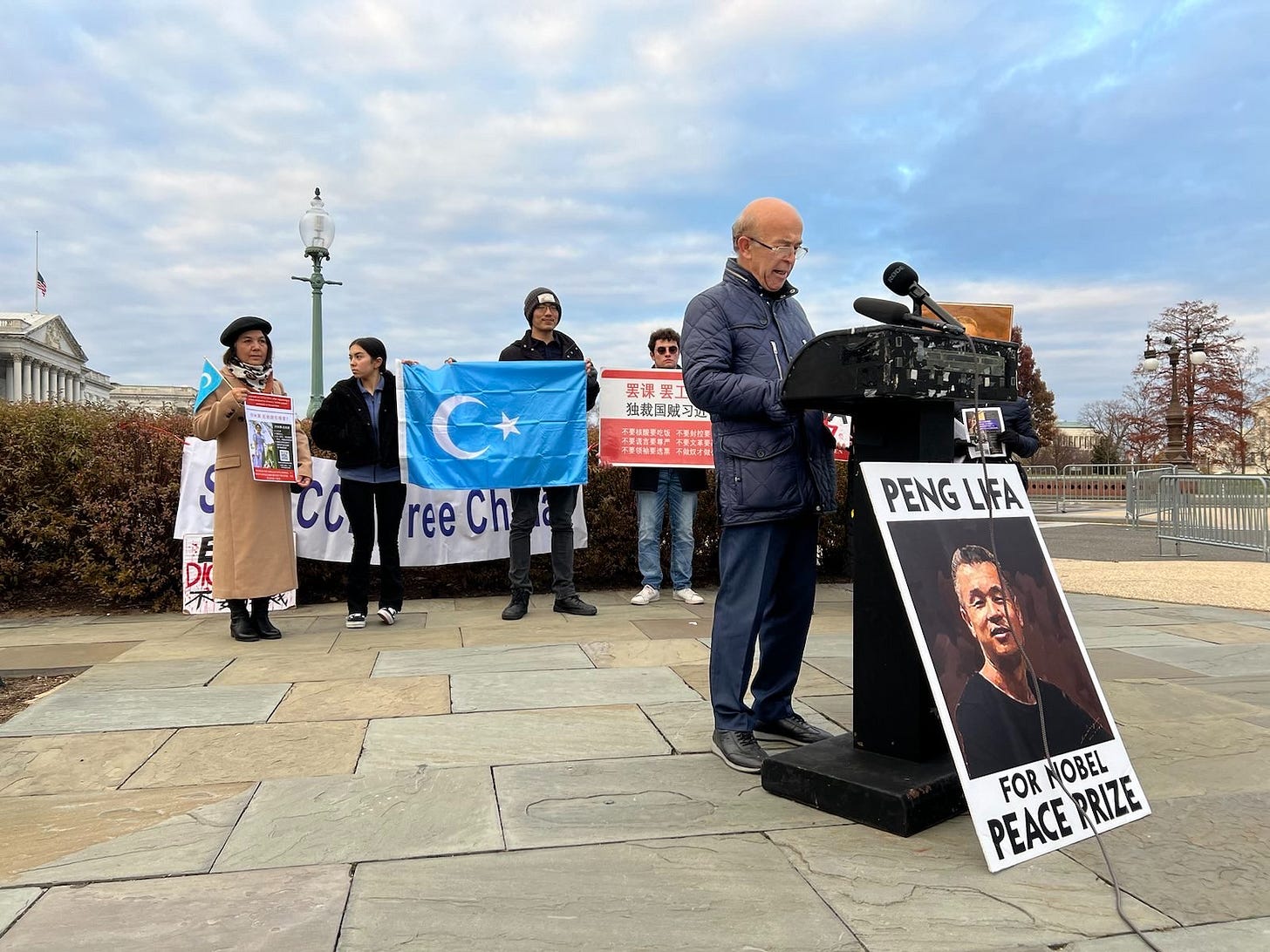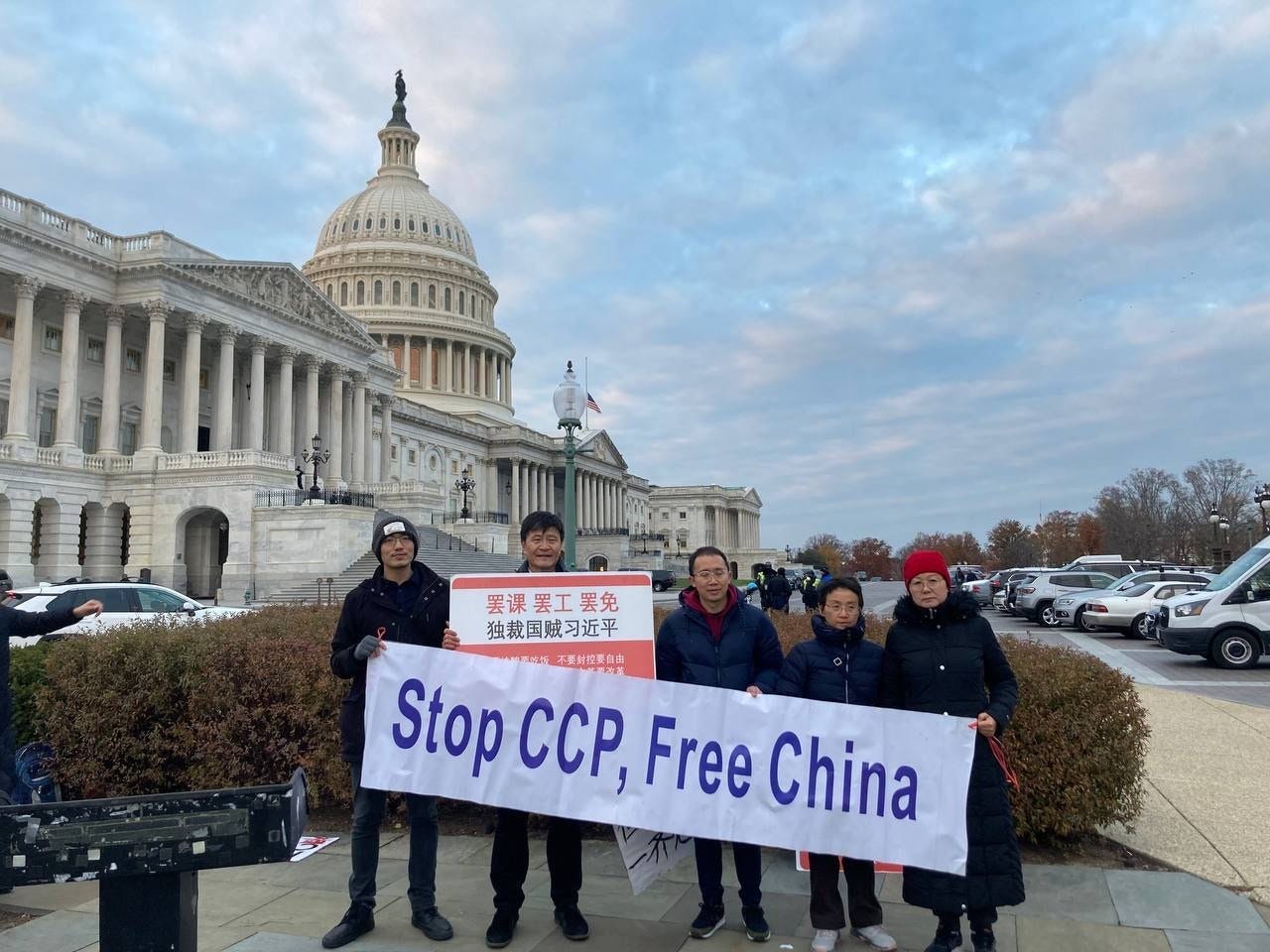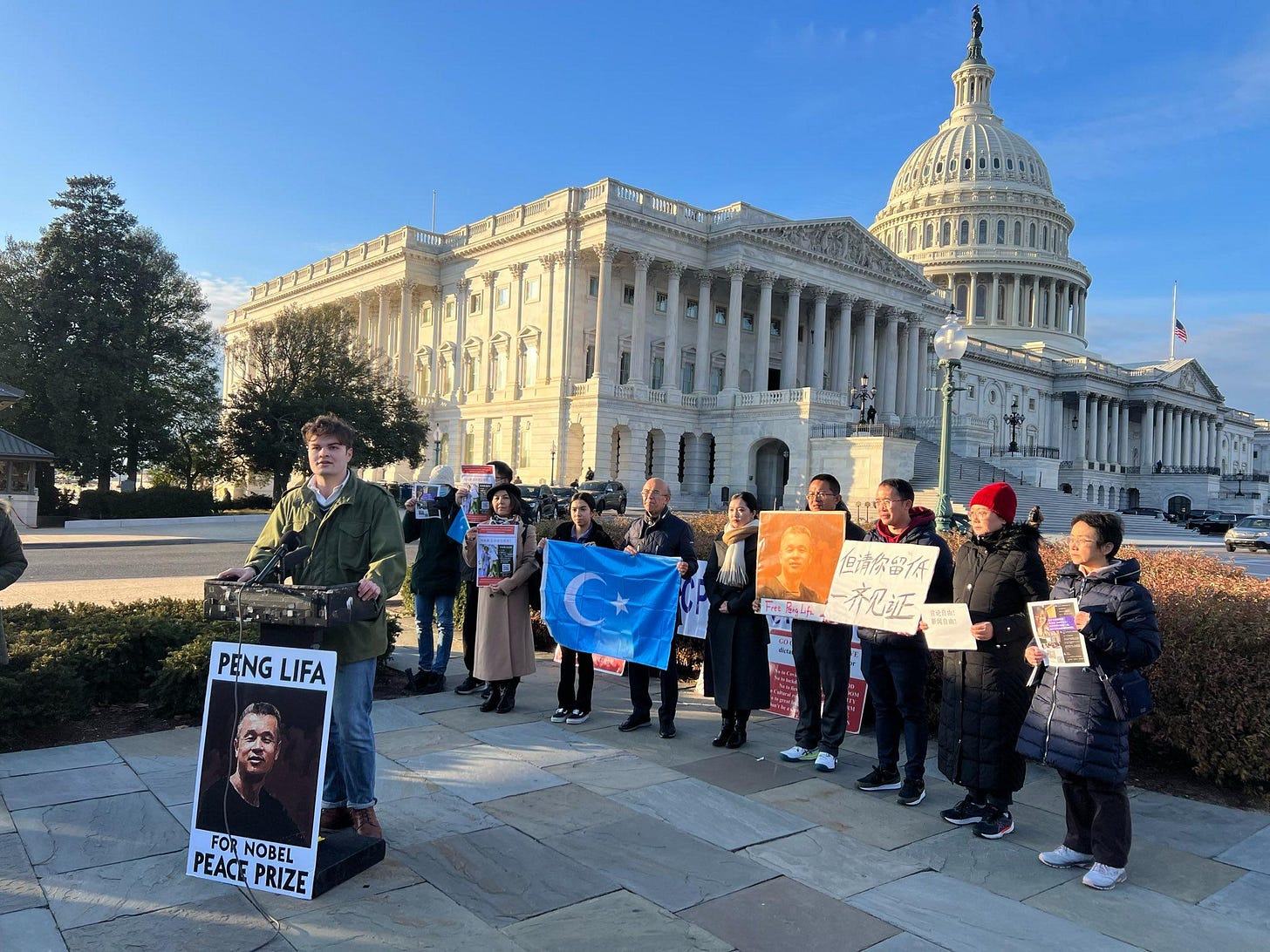On November 29, 2023, activists, students, and lawmakers gathered on the steps of the Capitol in Washington D.C. to demonstrate in honor of the victims of the Urumqi Fire and commemorate the White Paper Movement. HRIC was honored to co-sponsor this event alongside Free Uyghur Now, The Uyghur Human Rights Project, the Athenai Institute, and student organizations from D.C. universities. HRIC’s Executive Director Zhou Fengsuo, and Outreach Coordinator Rory O’Connor both spoke at the rally.
Rep. Mike Gallagher (R-WI), Chairman of the House Select Committee on the Chinese Communist Party, attended the demonstration and gave remarks. “There comes a point where tyranny becomes so obvious, and the censorship so overbearing, that slogans, arguments, and manifestos are no longer even needed. All you need is a blank sheet of paper. Everyone can fill in the content, even the oppressors.”
Rep. Gallagher also spoke admiringly of the bravery of Peng Lifa, who he has nominated for a Nobel Peace Prize, and others imprisoned by the Chinese government for defending a simple truth: that “Chinese people want, and deserve, freedom.” HRIC’s Zhou Fengsuo presented Rep. Gallagher with a poster of Peng Lifa, which he accepted to “proudly hang” in the Select Committee office.
Leslie, a young Chinese woman who participated in the White paper movement, spoke about her experience growing up under the oppressive CCP regime, including participating in mandatory military training, which she described as “endless, and tedious, obedience training.” Describing her time within the White Paper Movement, Leslie said that she and her compatriots protest not because they know the world will definitely listen, but because the world cannot afford to compromise with dictators forever. “We fight back, because it is our duty.”
Another speaker was Anna Kwok, executive director of the Hong Kong Democracy Council, who spoke about how she, as a Hongkonger, reacted to the White Paper Movement. Specifically, she shared how the White Paper Movement brought Hongkongers and Mainlanders closer together, as Mainlanders who had previously seen Hongkongers as “traitors” to the government in 2019 came to understand why Hong Kong had to take to the streets.
Other speakers included a representative from George Washington University’s College Democrats and Omer Kanat of the Uyghur Human Rights Project, who described the White Paper Movement as “a key moment of a just rebellion.” He emphasized the ongoing repression and genocide of the Uyghurs in Xinjiang, and drew special attention to the case of Kamile Wayit, a Uyghur teenager who is still imprisoned by the Chinese government for making an online post about the White Paper Movement.
HRIC Executive Director Zhou Fengsuo closed out the speeches with his remarks on the meaning and impact of the White Paper Movement. Zhou pointed out that Western governments spent a long time ignoring the human rights situation in China, but “the pandemic reminded the world that a China without freedom is a disaster for the world.” Ultimately, Zhou said, the White Paper Movement showed middle-class Chinese people who had benefitted from economic development policies that they still suffered under the thumb of a despotic regime.
However, the White Paper Movement brought hope and new energy to pro-democracy activism. “As a survivor of the Tiananmen Massacre,” Zhou said, “I was in tears when I heard ‘End CCP’ from the young people in New York City. I realized there is a hope for a free China.”

